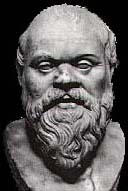 Freshman Studies
Freshman Studies
Winter Term, Section 02D
Freshman Studies
Winter Term, Section 02D
1. How would you define this work: a scientific study, an historical account, a philosophical treatise? 2. What does the word revolution usually mean--and
what would a “scientific revolution” imply?
4. What makes group activity so significant
in scientific inquiry for Kuhn?
6. Why is normal science a “game” of “puzzle-solving” that “does not aim at the unexpected novelty”? 7. What does Kuhn imply about the relationship
between facts (evidence) and theory (hypotheses)?
10. If normal science is tradition-bound and inhibits novelty, how can there be scientific revolutions? 11. How does Kuhn’s concept of “normal science” accord with conventional views of what science is like? 12. Which concept of science accords most closely with your own view? 13. What are “anomalies” and how disruptive are they to normal scientific work? 14. How do the shifts in awareness created by “new theories” differ from those triggered by anomalies? 15. Why do shifts of new theory produce a “crisis” in a scientific group? 16. How does scientific inquiry in such a “crisis” contrast with that in times of normal science? 17. To what degree can work done during a time of crisis be truly scientific or even valid? 18. What determines how a new paradigm wins support (becomes “law-like”) and resolves the crisis? 19. How do you understand the “switch of gestalt” that Kuhn equates with a paradigm shift? 20. In a switch of gestalt, can advocates of one vision effectively discuss it with those of another? 21. Is Kuhn claiming that new paradigms can only be chosen on faith, not by reason or proof? 22. Has Kuhn found science to be like art or music, subject only to shifts of style and outlook? 23. If “transition to a new paradigm is scientific revolution,” what is revolutionized in the process? 24. Is there long-range development of science, when paradigm change is “far from a cumulative process”? 25. How do you react to the idea that science may be evolving discontinuously—or detached from Truth? 26. How do you think contemporary scientists might
react this interpretation of science?
|